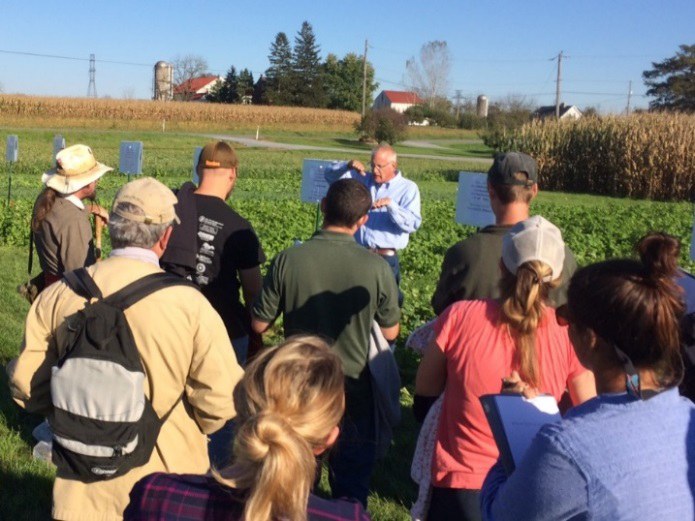Posted: November 17, 2017
A two day conference last month focused on the foundation for healthy ecosystems and agricultural production: soil health.
Hosted by USDA Natural Resources Conservation Service, AEC staff were among the participants at the Mid-Atlantic Soil Health Conference in Manheim, Lancaster County on October 17 and 18. Around 200 farmers, conservation professionals and other collaborators attended.
The conference consisted of classroom presentations and field visits to local farms in Lancaster County, including Eli Weaver's dairy farm, where he supports his own stream's health and practices no-till, and the farm of Jeff Fry, a hog and grain producer who sits on the board of the Pennsylvania No-Till Alliance.
Presentations and discussion topics ranged from the ecology of soil and its properties, to managing financial risk and choosing practices that make sense for a landowner to implement economically.
Lisa Blazure, agricultural resource conservationist with the Clinton County Conservation District, discussed the four basic principles of soil health and how land management can affect soil health in fundamental ways.
Russ Wilson of Wilson Land & Cattle Co. shared how active management of his soil has increased his carrying capacity for cattle and created a more economically sustainable and productive farm. Wilson has been able to cut feed costs by improving his soils and carefully managing his herd and grazing to keep the cattle on healthy pasture grass for as much of the year as possible.
The conference provided a venue for sharing advice among peers on how to approach specific problems, and discussing what resources and techniques are most effective in solving these problems. Steve Groff, a local farmer and President of Cover Crop Coaching, made it clear that practices like no-till and keeping good soil health should always be proactive messages for farmers. Highlighting farmers who do well with signage and recognition, reminding everyone that good soil health is an economic advantage for the market, and treating every cover crop like a cash crop to get their full benefits were among his suggestions for increasing adoption of soil health strategies.


